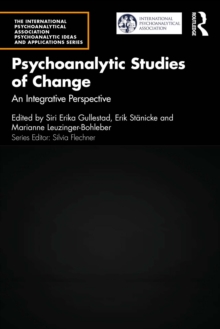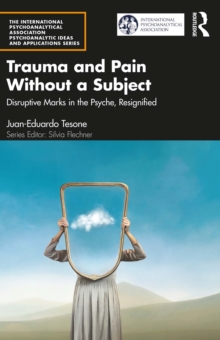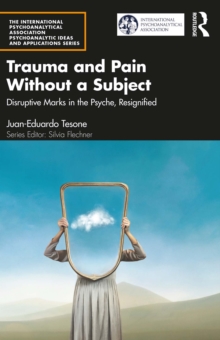
Unrepresented States and the Construction of Meaning : Clinical and Theoretical Contributions Paperback / softback
Edited by Howard B. Levine, Gail S. Reed, Dominique Scarfone
Part of the The International Psychoanalytical Association Psychoanalytic Ideas and Applications Series series
Paperback / softback
- Information
Description
In the last several decades, the analytic field has widened considerably in scope. The therapeutic task is now seen by an increasing number of analysts to require that patient and analyst work together to strengthen, or to create, psychic structure that was previously weak, missing, or functionally inoperative.
This view, which may apply to all patients, but is especially relevant to the treatment of non-neurotic patients and states of mind, stands in stark contrast to the more traditional assumption that the therapeutic task involves the uncovering of the unconscious dimension of a present pathological compromise formation that holds a potentially healthy ego in thrall.The contrast which this book calls attention to is that which exists roughly between formulations of psychic structure and functioning that were once assumed to have been sufficiently well explained by the hypotheses of Freud's topographic theory and those that were not.
The former are modeled on neurosis and dream interpretation, where conflicts between relatively well-defined (saturated) and psychically represented desires were assumed to operate under the aegis of the pleasure-unpleasure principle.
The latter involve a different level of psychic functioning and registration, one that is more closely associated with pre-verbal, and/or massive psychic trauma, as well as with primitive mental states.
It operates 'beyond the pleasure principle.' In complementary fashion, psychoanalytic theorizing has begun to shift from conceiving solely or predominantly of a universe of presences, forgotten, hidden or disguised, but there for the finding, to a negative universe of voids where creation of missing structure, often referred to by the Freudian metapsychological designation, representation, becomes of necessity part of the cure.However it is conceptualized psychoanalytically, representation is the culmination of a process through which impulse and content, and in favorable circumstances disguised versions of that part of the content that is unconscious, must all be linked.
It is a term with historical roots in Freud's metapsychology, and its psychoanalytic usage refers back to that tradition and theoretical domain.
It should not be confused with the way it or similar terms are used in other disciplines - e.g., child development or neuroscience - nor should references to its absence be misunderstood to necessarily imply the total absence of some kind of registration or inscription in 'the being,' i.e., the psyche or the soma, of the individual.
Information
-
Out of StockMore expected soonContact us for further information
- Format:Paperback / softback
- Pages:304 pages
- Publisher:Taylor & Francis Ltd
- Publication Date:01/01/2013
- Category:
- ISBN:9781780491318
Information
-
Out of StockMore expected soonContact us for further information
- Format:Paperback / softback
- Pages:304 pages
- Publisher:Taylor & Francis Ltd
- Publication Date:01/01/2013
- Category:
- ISBN:9781780491318



